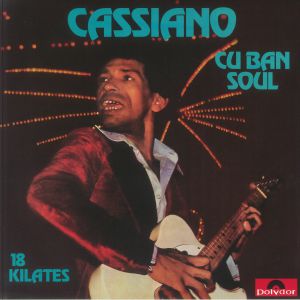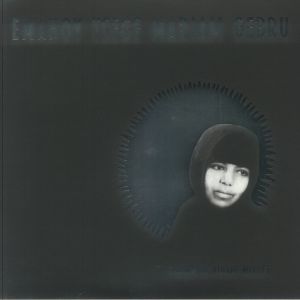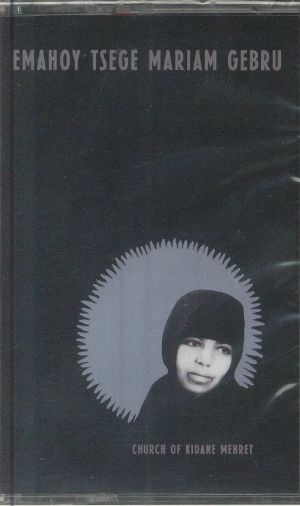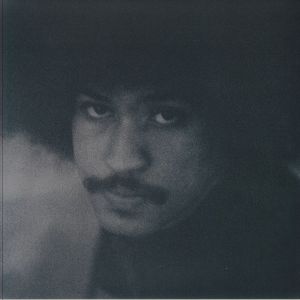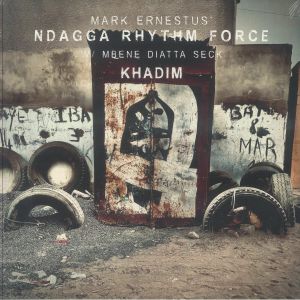New releases last four weeks: International
International vinyl released in the last four weeksReview: On Club Tounsi, Tunisian producer Sofyann Ben Youssef, aka AMMAR 808, brings the raw rhythmic power of Mezoued-the folk music of Tunisia's working class-into a bold electronic future. Fusing pulsating synths, distorted textures and TR-808 beats with traditional instruments like goatskin bagpipes, hand drums, and the ney, he reimagines iconic Mezoued tunes for a new generation. Vocalists from classical, Sufi and Mezoued backgrounds also feature to add human soul and mean the album captures the genre's emotional depth while transforming it into something cinematic and club-ready. This LP is a bridge between past and future, tradition and innovation and one that makes you want to move.
… Read moreIntérprete: Ex-Friendly (Truth & Lies Music)
in stock ₺916,22
Review: On their second release, Atelier Kamikazi continues to deliver raw, collaborative lyrics drawn from their experiences as street kids in Kinshasa, the capital of the Democratic Republic of the Congo. Like their debut on Seismographic Records, the group reflects on the harsh realities and surreal beauty of life in the city as they resist corrupt politics, challenge religious hypocrisy embodied by a figure they call "Priest Cat's Heart", and confront the dangers of "Bomb," a potent street drug. With vivid metaphors and unflinching honesty, they warn against its use while affirming their true tools for survival: words, wisdom and Loketo-the liberating hip-swing of Congolese dance.
… Read more in stock ₺1.191,78
Review: Following the cinematic jazz-funk of 2021's 'Ufo Bar', Banda Maje returns with a new 7" single via Four Flies, which serves as a preview of their upcoming sophomore album Costa Sud. Composer Peppe Maiellano deepens his Mediterranean sound here while honouring his Italian and Neapolitan roots with a heartfelt cover of Peppino di Capri's 'Mo...' on Side A. On Side B, Maiellano explores Brazilian influences with '(Roda De) Samba Maje' featuring Amor Pela Roda and infused with vibrant percussion and cavaquinho. This lovely 45 rpm reflects a rich blend of South-inspired sounds while bridging Italy, Brazil, Africa and modern grooves.
… Read more in stock ₺794,34
Barretto (50th Anniversary Edition) (180 gram vinyl LP in fold-out sleeve)
Cat: CR 00888. Rel: 08 May 25
Review: Craft Latino celebrates the 50th anniversary of the landmark 1975 salsa album by Ray Barretto with a deluxe reissue. This remastered edition of Barretto features the debut of Ruben Blades and Tito Gomez and includes iconic tracks like 'Guarare,' 'Ban Ban Quere' and 'Canto Abacua.' It has long been considered a cornerstone of the genre in which Barretto blends rich Afro-Cuban rhythms with lyrical depth and masterful musicianship from legends like Sly & Robbie and Augustus Pablo. It's a real bit of Latin music history that shines bright and is packed with shuffling rhythms and the sort of expressive percussion and horns that take you to a different continent in an instant.
… Read moreIntérprete: Juno Recommends International
in stock ₺1.468,39
Review: Tresor Magnetique is a treasure trove of unreleased tracks by the late great Francis Bebey-an international artist whose visionary work defies time and continues to add standout energy to eclectic DJ sets everywhere. These recordings have been digitised from fragile tapes found by his son and restored at Abbey Road Studios and blend pygmy flutes, drum machines, folk guitars and electronic textures in daring, genre-defying ways. Rather than a retrospective, this feels like an ongoing conversation that keeps Beby's work urgent and vital and prove Bebey wasn't just ahead of his time, he transcended it, from the lo-fi drum track magnificent of 'Quand Le Soleil Est La' to the raw, textured tropical funk of 'Where Are You? I Love You.'
… Read more in stock ₺1.258,55
Samba Esquema Novo (limited hand-numbered clear vinyl LP)
Cat: DMOO 092. Rel: 30 May 25
in stock ₺728,63
Viva! (reissue) (limited 180 gram vinyl LP)
Cat: 843656 3186370. Rel: 02 Jun 25
in stock ₺706,38
in stock ₺1.335,91
TEN (180 gram vinyl 2xLP (soundfiles not available))
Cat: CS 011. Rel: 15 May 25
Rabat
Federation Tunisienne De Football
Fan For A Twenty Years Old Human Being
A World Of Wonder
C'mon Tigre
December
Commute
Queen In A3
Life As A Preened Tuxedo Jacket
Building Society - The Great Collapse
Building Society - Renovation
Welcome Back Monkeys
Malta (The Bird & The Bear)
in stock ₺2.119,13
Review: Candeleros is a six-member, Colombia- and Venezuela-rooted collective based in Madrid that fuse Cumbia, merengue, dub and an array of Afro-Caribbean rhythms, creating a psychedelic, postmodern celebration of Latin sound. Their music blends Andean echoes, cinematic textures and hypnotic percussion into what feels like a ritualistic dance experience and has seen them collaborating with artists like Dodosound and Carlos Talez. They always reject the usual genre boundaries while focusing on cultural activism and the power of collective expression and have performed across Europe. As this album shows, their sound is passionate, borderless and proof that Cumbia has truly rooted itself in Europe.
… Read more in stock ₺1.523,50
Review: Cassiano's Cuban Soul - 18 Kilates was first released in 1976 and is a landmark of Brazilian soul for the way it blends the groove of American r&b with native rhythms in a way few artists have matched. Long coveted by collectors, the album has achieved cult status and now returns remastered from the original tapes on 180g vinyl so it is sure to fly off the shelves. Cassiano's velvety vocals glide over lush, cinematic arrangements throughout and in doing so, evoke the grandeur of contemporaries like Tim Maia. From start to finish, this album is packed with depth, warmth and effortless cool, which makes it an essential listen for anyone who likes soul, samba and vintage Brazilian brilliance.
… Read moreIntérprete: DJ ROCCA, Juno Recommends Soul
in stock ₺1.147,79
Review: Argentine electro-cumbia innovator Chancha Via Circuito (Pedro Canale) has a truly strong sense of give and take. His debut movements saw to Bienaventuranza (2018), a critically acclaimed album deep-setting his role in a gauzy downtempo reshape of the global music idiom. A full remix EP of the record followed, spewing forth fresh interpretations by echelonic music masters, including Euro-techno titan Nicola Cruz on 'Alegria', and Spanish producer Baiuca. Now, finally, comes the third in a three-step movement of remixes, this time hearing Chancha Via Circuito himself offer his own remixing hand to several of said very same artists, the works of El Buho, Nickodemus, and Lagartijeando also in tow. Deep, earthy tunes, full of natural oud harmonics blended with chanting, understated downbeats.
… Read more in stock ₺960,73
Guisando (Doing A Job) (reissue) (180 gram vinyl LP)
Cat: CR 00884. Rel: 29 May 25
in stock ₺1.446,14
Only They Could Have Made This Album (Record Store Day RSD 2025) (180 gram vinyl LP)
Cat: CR0 0879. Rel: 23 May 25
! low stock ₺1.589,21
Quem E Quem (reissue) (180 gram green vinyl LP)
Cat: 333081 LTD. Rel: 06 May 25
Review: Quem E Quem is widely regarded as Joao Donato's finest work and a standout in the canon of Brazilian popular music, aka MPB. Blending American soul and jazz-funk influences with the gentle sway of samba and bossa nova, the album radiates warmth and subtle sophistication and Donato's tender vocals are framed by breezy flute passages, laid-back piano lines and guitar solos reminiscent of Pat Metheny. The result is a beautifully balanced collection of upbeat tracks and introspective moments with each evoking the tranquil pleasure of a sunset in a tropical paradise. Timeless and effortlessly charming, it remains a high point in Donato's enduring career.
… Read moreIntérprete: Juno Recommends International
in stock ₺1.909,81
in stock ₺1.501,25
in stock ₺739,76
in stock ₺1.313,66
in stock ₺882,84
in stock ₺1.070,96
Review: Recorded in collaboration with Nils Frahm at Berlin's Leiter Studio, Ganavya's fourth album is destined to carve its own path to recognition due to its unique quality. A follow-up to last year's acclaimed Daughter of a Temple, which drew praise from many music outlets, Nilam - probably best known her for her appearance alongside Sault at their recent live show - continues her journey into music as devotion, meditation and memory. Born in New York and raised in Tamil Nadu, she moves fluidly between traditions, channeling pilgrimage trails, harikatha storytelling and jazz improvisation into something uniquely her own. Her voice is unhurried, intimate and full of clarity, conjuring stillness even in motion. It's a sound that invites stillness but never feels static, where every breath carries the weight of generations and each silence says as much as her lyrics. The songs on Nilam feel distilled from years of lived experience, shaped by years of live performance as tracks like 'Sees Fire' blend Eastern tonalities with meditative jazz, fusing introspection with emotional firepower. The album traces the patterns of gratitude, loss and rootedness meanwhile anchoring the listener in a place beyond the physical. Rather than chase genre, ganavya reaches toward essence. Nilam isn't just an album, it's a moment held in reverence. A sonic altar where memory, spirit and sound meet. In her hands, song becomes a ritual of listening.
… Read moreIntérprete: Juno Recommends International
in stock ₺1.247,42
Church Of Kidane Mehret (LP + booklet)
Cat: MRI 214LP. Rel: 22 May 25
Review: Mississippi Recs provide yet another delta stream's worth of Ethio musics by nun and composer Emahoy Tsege Mariam Gebru, presenting a remarkable body of work shaped by faith, solitude, and a deep reverence for sound. First self-released in 1972 and now enlarged over two formerly unheard piano pieces, this new curatorial crimp reveals Emahoy's profound engagement with the liturgical traditions of the Ethiopian Orthodox Church: all laid to record across sacred spaces in Jerusalem, they hear her play piano, harmonium and organ, with tactful piano fingers assuring a chiming touch on 'Ave Maria' and 'Essay on Mahlet', both religious chants heard to echo against ancient stone. Also inside are two compositions from the near-lost album Der Sang Des Meeres (1963), salvaged from obscurity and restored here with equal reverence.
… Read more in stock ₺1.059,30
Church Of Kidane Mehret (clear vinyl LP + booklet (indie exclusive))
Cat: MRI 214LPC1. Rel: 22 May 25
Review: Emahoy Tsege Mariam Gebru's deeply spiritual music has long remained a hidden gem and this release offers a rare chance to experience her most poignant works. Recorded in churches across Jerusalem, her performances on piano, harmonium and pipe organ transcend genre that blends Ethiopian Orthodox liturgy with the technical sophistication of her classical training. There's a serenity to these pieces, particularly in 'Ave Maria,' where her piano's crystalline chimes fill the sacred spaces, while 'Spring Ode - Meskerem' brings new life to familiar melodies, played through the rich drones of the harmonium. The collection moves from meditative to dramatic, with 'Essay on Mahlet' offering a slow, introspective journey as Emahoy translates the free verse of Orthodox liturgy into a delicate piano composition. The inclusion of 'The Storm' provides a moment of intense contrast, its stormy narrative unfolding through sharp, thunderous piano lines. Emahoy's ability to blend devotional themes with emotional depth is most apparent in 'Via Dolorosa,' where the music mirrors the weight of the stations of the cross with breathtaking gravity. Her music, though niche, stands out for its seamless fusion of Ethiopian spirituality with the grand traditions of Western classical music, feeling entirely distinct in its expression. The recordings, originally made in 1972, show a stark simplicity and restrained power that speaks directly to the soul. It's a rare treasure and an essential contribution to the world of spiritual music.
… Read more in stock ₺1.191,78
! low stock ₺573,90
in stock ₺1.137,20
in stock ₺1.093,21
Review: For five years, Acid Jazz has been showcasing Kevin Fingier's productions with each one carrying his signature Latin flair. It all began with 'Latin Dynamite', which sold out 15 days before its release and was followed by 'Cocktail de Medianoche' and 'Why Don't You Go Home', which were both instant sellouts. The second pressing of 'Latin Dynamite' included a fiery Latin rendition of the r&b classic 'It's Your Voodoo Working'. When Fingier released 'Not Strictly Soul,' it featured the Latin gem 'El Popcorn' which is now available on 7" for the first time. These four Latin Soul anthems are now united in one explosive Boogaloo EP that arrives just in time for summer.
… Read moreIntérprete: Craig Charles Funk And Soul, Juno Recommends Soul
in stock ₺706,38
Intérprete: Craig Charles Funk And Soul
in stock ₺993,59
Review: La Pambele, Bogota's salsa dura ensemble, distills the spirit of 1970s salsa while threading modern-day stories through every track. Their energetic and heartfelt music is a celebration of the culture that's so intrinsic to their city, blending bold rhythms with lyrics that hit close to home. In a city often perceived as less rhythmically charged than the coastal regions, the band defies the stereotype, delivering tracks like 'Para No Olvidar' and 'La Bella Y La Culebra' that pulse with energy and authenticity. 'Naci Mestizo', the album's title track, sees La Pambele collaborate with the seasoned Afro-Colombian folklorist Nicoyembe, adding layers of cultural depth and richness that further root the sound in Colombian heritage. The mix of piano, conga, flute, and brass on songs like 'Amargura' and 'Son Cimarron' carries a nostalgic yet forward-thinking energy, embracing the past while pushing boundaries. There's a warmth and precision in the way the orchestra weaves traditional salsa with contemporary expressions, effortlessly moving between nostalgia and modern relevance, all while telling the story of the everyday Bogotano in its boldest form.
… Read more in stock ₺1.667,11
Torta De Pan (7")
Cat: VAMPI 45111EP. Rel: 06 May 25
in stock ₺541,04
in stock ₺1.004,72
Album No 1 (Id Ed Was) (remastered) (LP + insert)
Cat: WWSLP 104LP. Rel: 22 May 25
Review: Wewantsounds continues its deep dive into Algerian music with the first-ever reissue of Les Abranis' sought-after-by-those-who-know 1983 long player, Album No. 1. Originally recorded in Paris and privately pressed in small quantities, the album, which is also known as Id Ed Was, fuses Kabyle rhythms with funk and touches of reggae. This reissue has been curated by Cheb Gero (of recent Sweet Rebels compiling fame) and features remastered audio, though it retains the original artwork. It's a great line document of Algeria's diasporic groove with a two-page insert featuring fresh liner notes by journalist Rabah Mezouane.
… Read moreIntérprete: Ex-Friendly (Truth & Lies Music)
in stock ₺1.446,14
in stock ₺2.119,13
in stock ₺1.147,79
in stock ₺949,61
Review: Continuing their mission to retrouve genres across the spectrums of Latin funk and cumbia, Original Gravity welcome back founding favourites Luchito and Nestor Alvarez with yet another sonic vitamin D pill, presaging the warmer days to soon come. Both sides tap into that rich 60s and 70s Afro-Carib crossover sound, with, at least on the face of it, no studio trickery in earshot (though careful listens reveal the method behind the majesty). Anyone with a weakness for brass-led Latin burner will melt on contact with this one.
… Read moreIntérprete: Craig Charles Funk And Soul, Juno Recommends International
in stock ₺497,06
in stock ₺938,48
in stock ₺971,33
Review: Khadim is a smart evolution of Ndagga Rhythm Force's sound-stripped down, spacious and spiritually charged. Abandoning guitars and full percussion, the four track album hones in on minimal live drumming, dubby synths (including Mark Ernestus's Prophet-5), and Mbene Diatta Seck's powerful, expressive voice. Each track is emotionally rich and narratively distinct while touching on Senegalese history, Sufi devotion and street-level struggles. Songs like 'Lamp Fall' and 'Khadim' pay homage to revered religious figures while blending traditional rhythms with contemporary electronics. After years of touring, this new direction feels deeply rooted yet forward-reaching and means this album is both devotional and radical in its dubwise majesty.
… Read more in stock ₺982,46
Cat: ORFEO 908591. Rel: 06 May 25
in stock ₺1.556,89
in stock ₺905,09
Review: Moskito's roots run deep in Tembisa, South Africa, where the pulse of the streets met the groove of kwaito. Founded by Mahlubi "Shadow" Radebe and the late Zwelakhe "Malemon" Mtshali, the group initially thrived as pantsula dancers before locking into the rhythmic power of kwaito. Their debut release captures the raw, unfiltered energy of that transition. 'Idolar' and 'Why Wena' kick things off with a heady blend of infectious vocals and bass-heavy beats, while tracks like 'Kwenzenjani' and 'Impohlo' bring their gritty, township roots to the forefront. Here, the music doesn't need to be refinedieach track, like 'Mashonisa' and 'Woza', is steeped in authenticity. It's the sound of a group at the crossroads of tradition and innovation, channeling the energy of their hometown while pulling from global influences to redefine the boundaries of kwaito. This is the essence of the genre, unfiltered and unpolishediraw, urgent and full of life.
… Read moreIntérprete: Juno Recommends International
! low stock ₺993,59
Intérprete: Juno Recommends International
in stock ₺573,90
Intérprete: Juno Recommends International
in stock ₺1.225,69
Review: Heavyweight sonic Afro-botics from Nikodemus, Barzo and Mr Doris on 7" wax. The trio team up here with Dinked Records for a double-bill 7" in veins of amapiano and broken beat, primed for crate sifters and floor ambulants alike. On the A, 'Want Some More' delivers Mr. Doris' signature blend of rhythmic muscle and Afro-Latin swang, while the flip flops Nickodemus with Barzo and Zongo Abongo for 'Show Your Power': a bold, percussive cut straddling broken beat, house, and ska. Somewhere between 126 and 128 BPM, both are utter floor finishers and could easily intro your next Afro-house set as they could provide it a sense of continuous, mid-set body.
… Read moreIntérprete: The Allergies, Juno Recommends International
in stock ₺507,66
Review: UK mambo kinds Orchestra Mambo International share their second single for ATA Records, both on digital and vinyl formats once more. After a dazzling debut single for the label back in May 2024, 'Balia Mi Cha Cha' is a funky cha cha number driven forth by the songwriting of bandleader and trombonist Jonny Enright, backed up by vibraphone from John Settle and lead vocals from Venezuelan singer Carlos "Pachanga" PeNa. The B-side, meanwhile, is a mambo instrumental entitled 'Bajo Con Vibes' ('Bass With Vibes'), which riffs on the double metonymy of the word "vibes" and plays up to a fantastically warm bass sound, providing a proper aural rung onto which central part of the track the listener may latch themselves and become thus enthralled.
… Read more in stock ₺441,42
Rainbow Love (gatefold 2xLP + booklet with obi-strip)
Cat: BBE 795ALP. Rel: 15 May 25
Review: BBE, known for its groundbreaking J-Jazz and J-Jazz Masterclass series, now shines a light on an inerasable gem in Japan's national discography: the debut LP Rainbow Love by Orquesta Del Sol, the country's first authentic salsa band. Salsa's roots in Japan trace back to the post-WWII era, with groups like Tokyo Cuban Boys, but it was the 1977 Fania All-Stars tour that initiated wider interest. Percussionist Masahito "Pecker" Hashida, influenced by New York's salsa scene, formed Orquesta Del Sol on his return. Their debut, put out in 1981, blends compositions in Japanese, Spanish, and English, while working in a cover of Noro Morales' 'Rumbambola'. Produced by Shuichi "Ponta" Murakami, the album's bold sound was a product of Japan's studio scene and the band's connection to the Nuyorican salsa style. This reissue includes seven bonus tracks from the band's later years, remastered for a new generation.
… Read more in stock ₺1.402,15
Intérprete: Juno Recommends International
in stock ₺1.126,07
in stock ₺1.247,42
in stock ₺1.324,26

 TRY
TRY















